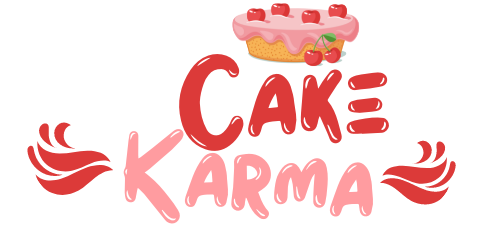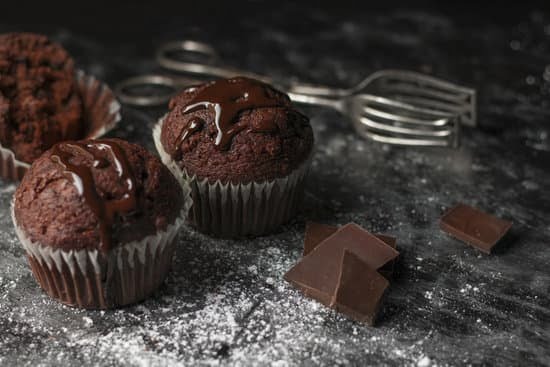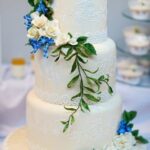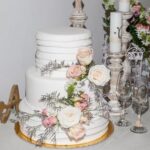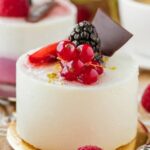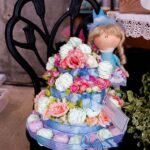Are you a cake decorator or aspiring to become one? With the growing trend of elaborate and personalized cakes, the demand for skilled cake decorators is higher than ever. This article will provide an in-depth look into the world of cake decorating, from the essential tools and techniques to the creative process and business aspects of the profession.
Cake decorating is more than just frosting a cake with a simple design. It involves skillfully crafting edible masterpieces that are not only visually stunning but also delicious. From intricate piping to sculpting fondant, a cake decorator plays a crucial role in bringing any special occasion to life through their artistry.
In this article, we will delve into the various aspects of cake decorating, providing insights into the role of a cake decorator, exploring different decorative mediums such as buttercream and fondant, and sharing tips and tricks for those looking to pursue a career in this creative field. Additionally, we will provide an exclusive interview with a professional cake decorator, offering valuable insights from an industry leader firsthand.
Whether you’re a seasoned pro or just starting out, there’s something for everyone in this comprehensive guide to the art of cake decorating.
The Role of a Cake Decorator in Creating Edible Masterpieces
The role of a cake decorator is pivotal in creating visually stunning and delicious edible masterpieces. From birthdays and weddings to special events, cake decorators play a significant part in bringing joy to clients through their creativity and expertise. This section will delve into the important responsibilities and skills required of a cake decorator, as well as the impact they have on making events memorable.
Attention to Detail
One of the most important aspects of being a successful cake decorator is attention to detail. Whether it’s piping intricate designs with precision or ensuring that every flower or decorative element is flawlessly placed, the devil truly lies in the details when it comes to cake decorating. A keen eye for design and symmetry is crucial, as it can make or break the overall appearance of the final product.
Artistic Creativity
Cake decorating is not just about applying buttercream or fondant; it’s about transforming a simple cake into a work of art. Cake decorators need to possess artistic creativity to envision and execute unique designs that cater to their clients’ preferences. Whether it’s replicating a favorite character from a movie or incorporating specific themes and colors, creativity plays a vital role in bringing concepts to life in cake form.
Culinary Skills
In addition to artistic abilities, cake decorators also require strong culinary skills. Understanding different types of batters, fillings, and flavors is essential for creating cakes that are not only visually appealing but also delicious. Furthermore, knowledge of various techniques such as icing consistency, airbrushing, and sculpting are necessary for executing intricate designs and textures on cakes.
Overall, the role of a cake decorator goes beyond simply frosting a cake; it involves transforming an ordinary dessert into an extraordinary masterpiece that leaves a lasting impression on clients and their guests. The combination of attention to detail, artistic creativity, and culinary skills are what sets exceptional cake decorators apart from the rest.
The Essential Tools and Techniques of a Cake Decorator
The Essential Tools of a Cake Decorator
When it comes to cake decorating, having the right tools is essential for creating beautiful and intricate designs. Some of the basic tools that every cake decorator should have in their arsenal include piping bags and tips, offset spatulas, bench scrapers, and fondant smoothers.
Piping bags and tips are used for adding details and designs to the cake, while offset spatulas are great for applying frosting. Bench scrapers help to create smooth edges on the sides of the cake, and fondant smoothers are essential when working with fondant to ensure a flawless finish.
Techniques Used by Cake Decorators
Cake decorators use various techniques to transform a simple cake into a stunning work of art. One common technique is piping, which involves using a piping bag and different tips to create intricate designs with frosting. Another popular technique is fondant sculpting, where decorators mold and shape fondant into different shapes and figures to adorn the cake. Airbrushing is also a technique used by many cake decorators to add color and dimension to their creations.
Staying Up-to-Date With New Trends and Techniques
In addition to mastering traditional techniques, it’s important for a cake decorator to stay current with new trends and methods in the industry. Attending workshops, taking online courses, and networking with other professionals can provide valuable insights into emerging techniques and tools. Keeping up-to-date with the latest trends ensures that a cake decorator remains competitive in the ever-evolving world of cake decorating.
From Buttercream to Fondant
When it comes to cake decorating, the type of decorative medium used can make a significant impact on the final product. From buttercream to fondant, there are various options available to cake decorators looking to create edible masterpieces. Each medium has its own unique qualities and challenges, making it important for a cake decorator to have a strong understanding of how to work with each one.
To help aspiring cake decorators navigate the world of decorative mediums, here are some of the most common options along with their characteristics:
- Buttercream: Buttercream is a popular choice for cake decorators due to its versatility and delicious taste. It can be easily colored and piped into intricate designs, making it ideal for creating beautiful flowers, borders, and other decorations.
- Fondant: Fondant is a smooth and pliable sugar paste that can be rolled out and draped over cakes for a flawless finish. It provides a clean canvas for creating elaborate designs and allows for intricate detailing that may be difficult to achieve with buttercream.
- Ganache: Ganache is made from chocolate and cream, creating a rich and glossy coating for cakes. It can be poured over cakes for a sleek finish or whipped into a frosting-like consistency for piping decorations.
Each decorative medium offers its own set of possibilities and challenges, allowing cake decorators to experiment and push their creative boundaries. By understanding the unique characteristics of each medium, a cake decorator can determine which one best suits their vision for a particular cake design. Whether it’s the smooth elegance of fondant or the creamy texture of buttercream, mastering these different decorative mediums is essential for creating stunning edible works of art.
The Creative Process
To find inspiration, a cake decorator typically starts by researching current trends in design, color palettes, and patterns. They may also attend industry events such as cake decorating conventions or workshops to stay updated on the latest techniques and styles. Additionally, many cake decorators find inspiration in everyday objects or experiences – a walk in the park, a visit to a museum, or even a conversation with a friend can spark ideas for their next creation.
Once inspired, a cake decorator will often sketch out their ideas on paper before translating them into edible works of art. This process helps them visualize the final product and make any necessary adjustments before starting to work with the cake itself. It’s this blend of creativity and technical skill that truly defines the work of a cake decorator.
Some tips for finding inspiration as a cake decorator include:
- Keeping a sketchbook or mood board for collecting ideas
- Experimenting with different mediums and techniques
- Collaborating with other artists or bakers for fresh perspectives
By embracing these strategies, both aspiring and experienced cake decorators can continue to cultivate their creativity and produce stunning confections that captivate both eyes and taste buds alike.
The Business of Cake Decorating
One of the key aspects of turning cake decorating into a profitable career is establishing a strong brand identity and marketing strategy. This includes creating an impressive portfolio showcasing previous work, building an online presence through social media and a professional website, and networking within the industry. A successful cake decorator knows how to effectively promote their services to attract clients and build a solid customer base.
In addition to honing their decorating skills, aspiring cake decorators should also educate themselves about the legal and financial aspects of running a small business. This includes obtaining necessary permits and licenses, understanding pricing strategies, managing expenses, and providing exceptional customer service. By treating their passion for cake decorating as a business venture, individuals can maximize their potential earnings while doing what they love.
| Aspect of Cake Decorating Business | Key Considerations |
|---|---|
| Brand Identity and Marketing Strategy | Building portfolio, online presence through social media and website, networking |
| Legal and Financial Aspects | Permits/licenses, pricing strategies, expense management, customer service |
Tips and Tricks for Aspiring Cake Decorators
Aspiring cake decorators often find themselves overwhelmed by the endless possibilities and techniques involved in creating beautiful and delicious works of art. However, there are a few essential tips and tricks that can help them navigate through the world of cake decorating with more confidence and ease.
One important tip for aspiring cake decorators is to start with the basics. Understanding the foundational techniques such as icing a smooth cake, piping simple designs, and working with basic tools will provide a strong foundation for more intricate designs in the future. Building a solid skill set in the fundamentals will set the stage for success in more complex projects.
Additionally, it’s crucial for any aspiring cake decorator to experiment and practice consistently. Trying out different techniques, exploring various decorative mediums, and practicing regularly will lead to improved skills and creativity. Don’t be afraid to make mistakes – they are part of the learning process. Embracing trial and error will ultimately result in growth and mastery as a cake decorator.
Furthermore, seeking out mentorship or joining a community of fellow cake decorators can provide valuable support and guidance. Learning from experienced professionals or connecting with other enthusiasts can offer insights, advice, and inspiration. Sharing experiences with like-minded individuals can also provide encouragement and motivation along the journey of becoming a skilled cake decorator.
Interview With a Professional Cake Decorator
In conclusion, the world of cake decorating is a beautiful and intricate art form that requires skill, creativity, and a passion for creating edible masterpieces. A cake decorator plays a crucial role in turning simple cakes into stunning works of art, using essential tools and techniques to bring their visions to life. Whether working with buttercream or fondant, these professionals have the ability to transform a plain dessert into a visually stunning centerpiece.
The creative process for a cake decorator is one that often involves finding inspiration from different sources, whether it be nature, architecture, or even fashion. Each design is unique and requires careful planning and execution.
Additionally, for those looking to turn their passion for cake decorating into a profitable career, there are various business opportunities within the industry. From opening up their own bakery to offering custom cake decorating services for special events, there are many avenues for success in this field.
For aspiring cake decorators looking to enter the industry, it’s important to continually learn and refine your skills through practice and by seeking out tips and tricks from seasoned professionals. With dedication and hard work, it’s possible to carve out a successful career as a cake decorator.
And perhaps most importantly – never lose sight of the joy that comes from creating something truly beautiful out of sugar, flour, and creativity. So go ahead – let your imagination soar and create your own delicious works of art.
Frequently Asked Questions
What Is a Cake Decorator Called?
A cake decorator is commonly referred to as a pastry chef or a cake artist. These professionals are skilled in decorating cakes and creating visually appealing designs using various techniques and tools.
What Do You Do as a Cake Decorator?
As a cake decorator, the main responsibility is to decorate cakes using icing, frosting, and other decorative elements like fondant, edible flowers, and piping. They also need to have an eye for detail and be able to follow specific design instructions provided by clients while ensuring the final product is both visually stunning and delicious.
Is a Cake Decorator an Artist?
Yes, a cake decorator can certainly be considered an artist. Their ability to skillfully create intricate and beautiful designs on cakes requires creativity, precision, and a strong attention to detail. Much like traditional visual artists, cake decorators use their skills to turn ordinary cakes into stunning creations that are not only delicious but also visually appealing.

Welcome to our cake decorating blog! My name is Destiny Flores, and I am the proud owner of a cake decorating business named Cake Karma. Our mission is to provide delicious, beautiful cakes for all occasions. We specialize in creating custom cakes that are tailored specifically to each customer’s individual needs and tastes.
